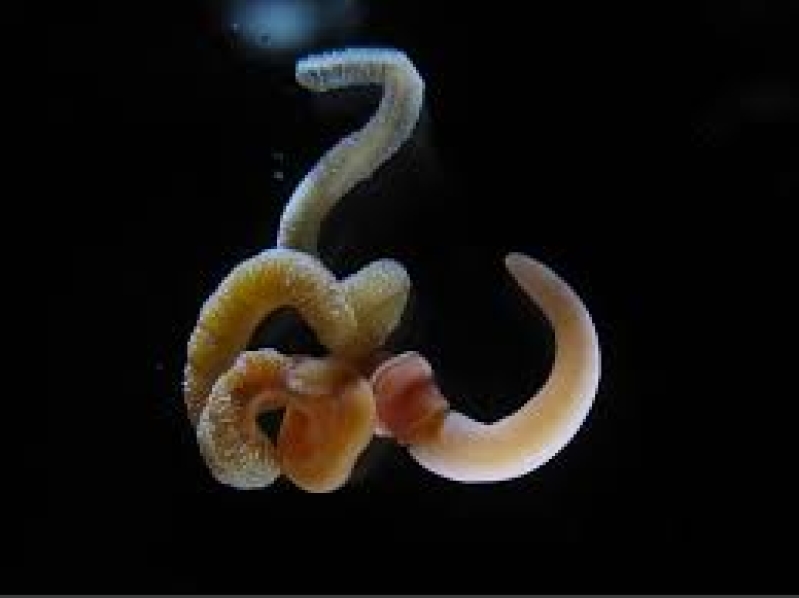
An international team of researchers found an amazing discovery. Their latest findings show humans and deep-sea worms share approximately 14,000 genes. The study sheds light about the evolution of all species here on Earth.
Over 500 million years ago, humans and certain worms have the same ancestor, and people still share thousands of genes with these worms.
In order to prove this, the researchers studied human genomes and two species of acorn worms-- Ptychodera flava, from Hawaii and Saccoglossus kowalevskii, collected off Atlantic Ocean. After sequencing the genomes of two worms, the researchers found the worms' genes could have a part in the development of human pharynx.
The discovery explains why acorn worms have specialized slits near their gut regions, found between their mouth and esophagus. The slits in the animal plays an important role in its digestive system.
The examined genes from the worms could also pave way for the development of gills in fish.
"The presence of these slits in acorn worms and vertebrates tells us that our last common ancestor also had them, and was likely a filter feeder like acorn worms today," said Daniel Rokhsar, co-author of the study from University of California, Berkeley.
The researchers explained that since acorn worms and the human lineage diverged 500 million years ago, the slits for filtering evolved into gills, and later become today's pharynx of humans, which is composed of tongue, thyroid gland and voice box.
Species like acorn worms can help scientists understand the contribution of ancient genes in evolution, and how it controlled the development of different but related physical features across animal species.
"The genomic data fills in the gaps in our understanding of their evolution," said Oleg Simakov, lead author of the study from University in Okinawa, Japan.
By comparing the worm's genes with sequences of many other animals, the researchers found that clusters of genes on the same chromosome in humans are often found clustered together on the acorn worm genome. There are also cases that the local structure of genome is the same, despite the fact that the two genomes have branched off billions of years ago.
For future studies, the researchers said they will expand genomic analysis and include more under-sampled regions across the sprawling tree of life.
The latest study is published in the journal Nature.







